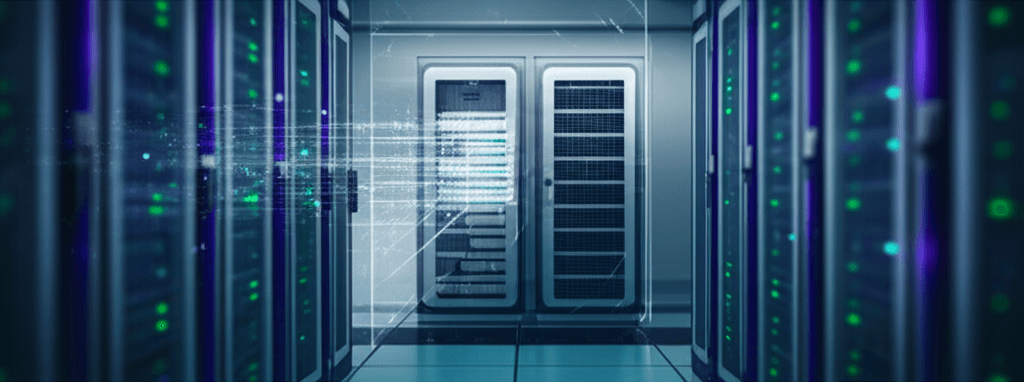Businesses Prioritize Privacy, Shift AI Workloads On-Premise for Full Control
Businesses are bringing AI in-house to protect sensitive data, ensure compliance, and achieve true data sovereignty.
July 2, 2025

As businesses increasingly integrate artificial intelligence, a growing number are turning away from mainstream cloud-based services toward local AI models to enhance data privacy and security. The reliance on third-party AI tools often involves uploading sensitive company information to external servers, creating potential vulnerabilities and data privacy concerns.[1][2] By contrast, installing and running AI models on a company's own hardware ensures that all proprietary and customer data remains within the organization's control, offering a powerful solution for industries bound by strict confidentiality and regulatory requirements.[3][4][5]
The fundamental difference between cloud and local AI lies in where data processing occurs.[6][5] Cloud AI, offered by major providers like Google and OpenAI, processes data on external servers, which provides immense computational power without requiring significant upfront hardware investment from the user.[6][7] However, this convenience comes at the cost of data control.[8] When a company uses a cloud-based AI, it sends its information over the internet, introducing risks of data breaches during transmission and entrusting a third party with its security.[4][9] This arrangement can be particularly problematic for businesses in sectors like healthcare, finance, and law, which handle highly sensitive information and are subject to stringent data protection laws such as the Health Insurance Portability and Accountability Act (HIPAA) and the General Data Protection Regulation (GDPR).[3][10][11] Running AI models locally, or on-premise, eliminates this data transfer to external parties. All computations are performed on a company's own servers, keeping sensitive data securely within its own infrastructure.[4][5] This self-hosted approach grants organizations complete autonomy over their data, significantly reducing the risk of unauthorized access and ensuring compliance with data localization and privacy regulations.[3][12]
The adoption of local AI offers substantial data privacy and security advantages beyond just keeping data in-house. By processing information on-site, businesses can implement customized security measures tailored to their specific risk tolerance and operational needs.[4][12] This level of control is crucial for protecting intellectual property, such as proprietary source code or sensitive research and development data.[10] Furthermore, on-premise AI systems can be configured to operate without an internet connection, providing an "air-gapped" environment that is inherently more secure from external cyberattacks.[4][13] This offline capability also ensures uninterrupted operations during internet outages, a critical factor for many industries.[13] For organizations in fields like government and defense, which handle classified information, local AI provides an isolated environment for sensitive data analysis, mitigating national security risks.[10] Similarly, law firms can leverage on-premise AI for secure document review and eDiscovery, maintaining attorney-client privilege without the risk of external data exposure.[10]
The increasing availability of powerful open-source AI models and tools has made local deployment more accessible than ever.[14][15] Models like Meta's Llama series, along with tools such as Ollama and LM Studio, allow businesses to download and run sophisticated large language models on their own hardware.[1][16][14] These frameworks often provide user-friendly interfaces that simplify the process, with some requiring minimal to no coding expertise.[17][2] Tools like LocalAI even offer a drop-in replacement for the OpenAI API, allowing companies to switch from cloud to local processing without overhauling their existing applications.[18] However, a primary consideration for businesses is the hardware requirement. Running large models efficiently demands significant computational resources, including powerful multi-core processors (like Intel Xeon or AMD EPYC), substantial RAM (often 128 GB or more for server applications), and high-end GPUs (like NVIDIA's A100 or RTX series).[19][20] While smaller models can run on high-end desktop computers, enterprise-level applications necessitate a considerable initial investment in server infrastructure.[19][1]
Despite the initial hardware costs and the need for in-house technical expertise for setup and maintenance, the long-term benefits of local AI are compelling.[11][7] Beyond the paramount advantage of enhanced data privacy, local AI offers predictable, often lower, long-term costs by eliminating the recurring subscription and pay-per-use fees associated with cloud services.[4][11] It also provides lower latency, as data does not need to travel to and from external servers, resulting in faster response times for real-time applications in fields like manufacturing or customer support.[21][5] As the capabilities of open-source models continue to advance, the performance gap with their proprietary, cloud-based counterparts is narrowing.[2] For businesses that prioritize data sovereignty, security, and long-term cost control, the strategic adoption of local AI models presents a transformative opportunity to harness the power of artificial intelligence without compromising on privacy.[3][9][5]
Sources
[2]
[3]
[4]
[5]
[7]
[8]
[9]
[10]
[11]
[13]
[14]
[15]
[16]
[17]
[18]
[19]
[21]